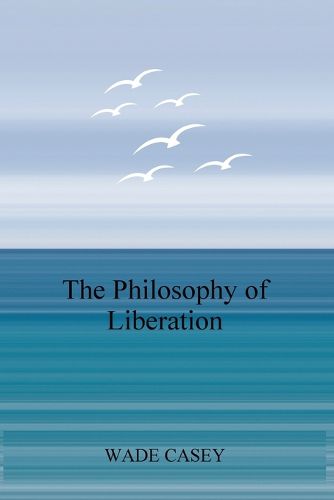Readings Newsletter
Become a Readings Member to make your shopping experience even easier.
Sign in or sign up for free!
You’re not far away from qualifying for FREE standard shipping within Australia
You’ve qualified for FREE standard shipping within Australia
The cart is loading…






This title is printed to order. This book may have been self-published. If so, we cannot guarantee the quality of the content. In the main most books will have gone through the editing process however some may not. We therefore suggest that you be aware of this before ordering this book. If in doubt check either the author or publisher’s details as we are unable to accept any returns unless they are faulty. Please contact us if you have any questions.
This dissertation investigates the philosophical underpinnings of the Bolivarian education system in Venezuela, aiming to understand its ideological roots, cultural significance, and epistemological orientation. It takes as its point of departure the foundational ideas of Simon Bolivar and Simon Rodriguez-two key figures whose visions for Latin American emancipation and education continue to shape the national identity and policies of the Bolivarian Republic. Through a close reading of official national curricula and educational documents, the research traces how these foundational visions have been institutionalized in contemporary educational practice.
The core research question driving this study is: What is the philosophical basis of the Bolivarian education system? In order to unpack this, the study addresses two key subquestions:
a) How can Enrique Dussel's philosophy of liberation help us understand the cultural, political, and epistemological orientation of the Bolivarian education system?
b) What philosophical possibilities does the Bolivarian education system suggest for the philosophy of critical pedagogy?
To explore these questions, the study employs a philosophical analysis grounded in the coloniality of power framework (as articulated by Anibal Quijano and Immanuel Wallerstein) and Enrique Dussel's philosophy of liberation. This dual framework allows for a critical examination of how colonial patterns of knowledge, power, and subjectivity continue to operate within and against the structures of postcolonial Latin American states.
Dussel's philosophy provides a key theoretical lens through which to understand how the Bolivarian education model attempts to resist epistemological colonialism by centering the historical and cultural perspectives of the oppressed. His work calls for a "transmodern" approach-an ethical and philosophical rupture with Eurocentric modernity that opens space for marginalized voices and knowledges.
The findings of this dissertation suggest that the Bolivarian education system is not merely a political project but a deeply philosophical one. It enacts a decolonial vision of education rooted in liberation, collective identity, and cultural sovereignty. This vision challenges traditional Western frameworks of critical pedagogy by offering a lived, contextually grounded alternative that prioritizes the epistemologies of the Global South.
Ultimately, the research contributes to broader discourses in critical pedagogy, decolonial theory, and political philosophy, offering new insights into how national education systems can be reimagined through a liberatory and ethical framework. It emphasizes that education, when rooted in historical consciousness and ethical responsibility, can serve as a powerful tool for collective emancipation and social transformation, ....
$9.00 standard shipping within Australia
FREE standard shipping within Australia for orders over $100.00
Express & International shipping calculated at checkout
This title is printed to order. This book may have been self-published. If so, we cannot guarantee the quality of the content. In the main most books will have gone through the editing process however some may not. We therefore suggest that you be aware of this before ordering this book. If in doubt check either the author or publisher’s details as we are unable to accept any returns unless they are faulty. Please contact us if you have any questions.
This dissertation investigates the philosophical underpinnings of the Bolivarian education system in Venezuela, aiming to understand its ideological roots, cultural significance, and epistemological orientation. It takes as its point of departure the foundational ideas of Simon Bolivar and Simon Rodriguez-two key figures whose visions for Latin American emancipation and education continue to shape the national identity and policies of the Bolivarian Republic. Through a close reading of official national curricula and educational documents, the research traces how these foundational visions have been institutionalized in contemporary educational practice.
The core research question driving this study is: What is the philosophical basis of the Bolivarian education system? In order to unpack this, the study addresses two key subquestions:
a) How can Enrique Dussel's philosophy of liberation help us understand the cultural, political, and epistemological orientation of the Bolivarian education system?
b) What philosophical possibilities does the Bolivarian education system suggest for the philosophy of critical pedagogy?
To explore these questions, the study employs a philosophical analysis grounded in the coloniality of power framework (as articulated by Anibal Quijano and Immanuel Wallerstein) and Enrique Dussel's philosophy of liberation. This dual framework allows for a critical examination of how colonial patterns of knowledge, power, and subjectivity continue to operate within and against the structures of postcolonial Latin American states.
Dussel's philosophy provides a key theoretical lens through which to understand how the Bolivarian education model attempts to resist epistemological colonialism by centering the historical and cultural perspectives of the oppressed. His work calls for a "transmodern" approach-an ethical and philosophical rupture with Eurocentric modernity that opens space for marginalized voices and knowledges.
The findings of this dissertation suggest that the Bolivarian education system is not merely a political project but a deeply philosophical one. It enacts a decolonial vision of education rooted in liberation, collective identity, and cultural sovereignty. This vision challenges traditional Western frameworks of critical pedagogy by offering a lived, contextually grounded alternative that prioritizes the epistemologies of the Global South.
Ultimately, the research contributes to broader discourses in critical pedagogy, decolonial theory, and political philosophy, offering new insights into how national education systems can be reimagined through a liberatory and ethical framework. It emphasizes that education, when rooted in historical consciousness and ethical responsibility, can serve as a powerful tool for collective emancipation and social transformation, ....